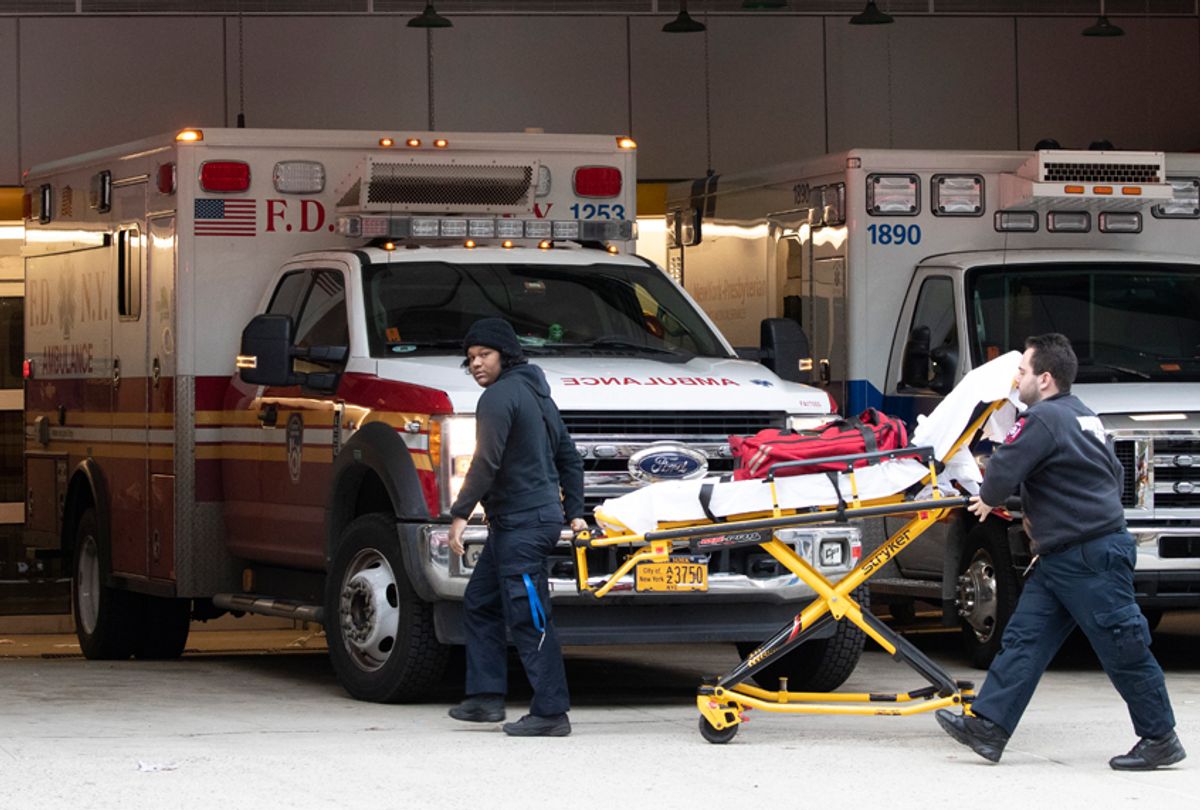I'm an emergency physician. Like you, I've been worrying a lot. I'm trained and prepared to bring you comfort and save your life. But recently I've been wondering how — and whether — you want me to do that. And I can't answer that without your help.
In the emergency department, our conversation doesn't usually start with that question, but in this moment, perhaps it should. You feel run-down. Your ankle hurts. Your gallstones are acting up. Diarrhea. Headache. Short of breath. Could you have COVID-19? Sometimes I can reassure you that you probably don't, but that we don't know for sure. Sometimes, I can phone you at home if a swab from your nose tests positive. Sometimes, we're out of tests.
Either way, I warn you that the test isn't perfect, and that you should isolate yourself as though it were positive. Knowing this, do you want the test?
Usually, you will get better, but sometimes you won't. That is what I worry about. The coronavirus is new, but if you come back gasping for air, what I can do for you is familiar. If breathing begins to exhaust you, we'll give sedatives to quiet the remainder of your consciousness, and then paralyzing medications to make you limp, so we can use a metal tool the size of your hand to thread a plastic tube the size of your finger from your mouth to the top of your lungs. Occasionally, this stress may stop your heartbeat, but either way, we'll squeeze oxygen through this tube into your lungs with a ventilator machine. Over the course of many days, my colleagues in the intensive care unit will keep you sedated so you won't gag on the breathing tube. You may need more tubes — into the stomach, bladder, and veins deep in your neck. And if you're not getting better quickly, the ICU may ask for permission to do "a trach and a peg," which makes these tubes more permanent.
Do you want this?
Despite our best efforts, COVID-19 may still kill you. The virus damages the lining of your lungs so you can't get oxygen no matter how high we turn up the ventilator. Or it can replicate so wildly that your own body's reaction to it damages your organs. This coronavirus even seems to infect and weaken the heart directly.
And each of our treatments creates its own complications. Infections can develop around any of the tubes going into you, and the medications we give you to prevent blood clots and stomach ulcers can themselves cause bleeding and stomach infections. Even before COVID-19, we could only guess at the odds of you surviving with (or without) the breathing machine — it could be a coin flip, or a bit better or worse. It probably depends a lot on how frail you are — but either way, we need a team of specialists to monitor your every bodily function for days or weeks.
And, no matter how many ventilators we can manufacture, we still must ration expert human attention. Over the course of weeks as our ICUs run out of beds, or of minutes in the emergency department if we have multiple patients on the verge of death at the same time. We'll try our best, and you very well may get much better. But things may also go poorly, and even ICU survivors often have post traumatic stress disorder.
Do you want this?
That's why I need you to talk about this with the people you love: how do you want us to care for you? When would you want us to focus on your comfort, so you can live — and perhaps die — naturally? This is not an easy question, so even if you can't answer it now — and that's okay — remember that you can always ask about your options. It's our privilege to care for you, and it helps us to do that if we know what you want. Talk about it now, when you're well, so your friends and family can help us if you're not well. Whether you feel young and invincible or wise and frail, this is one way to tell someone you love them.



Shares